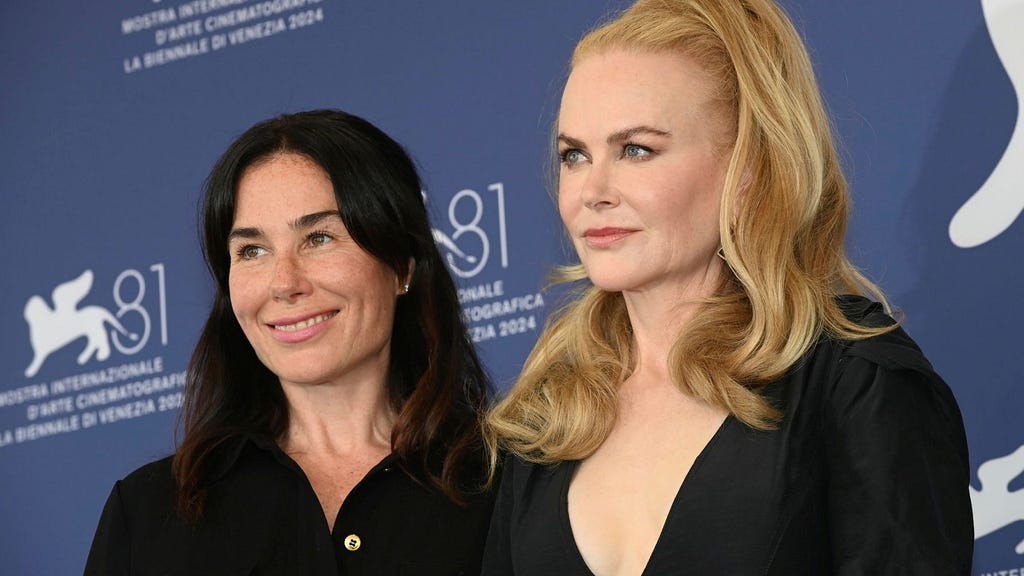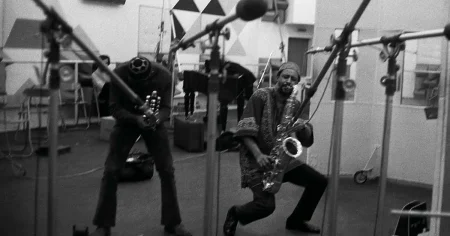Halina Reijn’s film ”Babygirl” has ignited conversation, primarily due to Nicole Kidman’s daring performance, embodying a married CEO named Romy who embarks on a clandestine affair with a male intern, exploring themes of submission and forbidden desires. However, beyond the surface level of a provocative narrative, the film delves into Reijn’s personal exploration of her own deepest fantasies and vulnerabilities, contrasting them with the societal expectations of a strong, successful woman. ”Babygirl” acts as a vehicle for Reijn to confront her own complex relationship with men and grapple with her identity. This introspective journey, tinged with self-deprecating humor, is evident in Reijn’s own words, describing the film as a ”cry for help.”
Reijn’s journey as a filmmaker began in the world of acting, primarily in theatre, with notable roles in Paul Verhoeven’s ”Black Book” and Bryan Singer’s ”Valkyrie.” ”Babygirl” can be seen as a thematic evolution from her debut feature film, ”Instinct,” which explored a destructive relationship between a female prison psychologist and a sexual offender. Securing Nicole Kidman for the lead role was a dream realized for Reijn, who had long admired Kidman’s courage and vulnerability as an actress. This admiration transformed into a collaborative partnership, with Kidman revealing her own anxieties and fears, highlighting the shared human experience beneath the veneer of stardom.
The film draws inspiration from the erotic thrillers of the 80s and 90s, such as ”Basic Instinct” and ”9 1/2 Weeks,” films that resonated with Reijn on a personal level, despite the accompanying shame and taboo. Reijn perceives a post-#MeToo landscape as providing a space for these themes to be explored with a renewed female perspective. While acknowledging the ”erotic thriller” label, Reijn prefers to categorize ”Babygirl” as a fairytale or a comedy of manners, emphasizing the importance of humor and empathy for all characters, aiming to avoid simplistic moral judgments.
Beyond the erotic elements, ”Babygirl” delves into the complexities of modern masculinity and vulnerability. The casting of Antonio Banderas as a cultured man struggling with intimacy, and Harris Dickinson as the young intern Samuel, challenges conventional portrayals of power dynamics and submission. Reijn flips the script on the stereotypical view of masochism as a male fantasy, presenting Romy’s midlife crisis as a quest for self-destruction, actively choosing Samuel and demanding a masculinity he may not possess. This exploration of dominance and vulnerability adds layers to the film’s portrayal of sexual dynamics.
Reijn’s interaction with Generation Z, particularly during the filming of the horror-thriller ”Bodies Bodies Bodies,” significantly influenced the character development of Samuel. She was captivated by their freedom, vulnerability, confidence, and sex-positivity, noting their disregard for traditional hierarchies. This generational influence injected a fresh perspective into the film’s exploration of sexual dynamics and relationships, challenging preconceived notions and embracing a more fluid and open approach.
“Babygirl” doesn’t shy away from addressing the pressures and anxieties surrounding aging and beauty standards, particularly for women. With Nicole Kidman in the lead role, the film tackles the subject of cosmetic procedures and societal expectations head-on. Reijn acknowledges the feminist dilemma of bodily autonomy while simultaneously critiquing the pervasive obsession with physical perfection. She highlights the struggle faced by both men and women in conforming to these unrealistic ideals, advocating for more narratives that challenge these pressures and encourage a broader, more accepting view of beauty and aging. This thematic layer adds depth and relevance to the film, prompting viewers to question the societal forces that shape our perceptions of ourselves and others.














